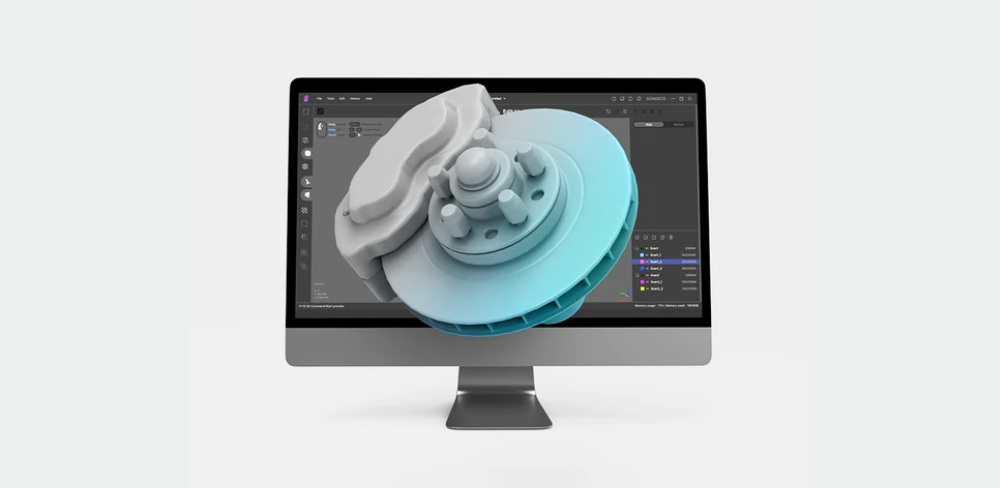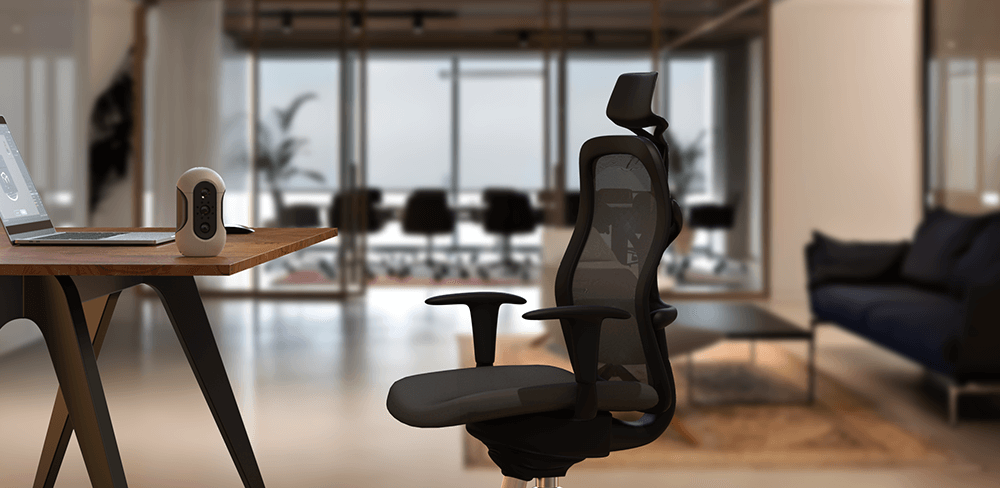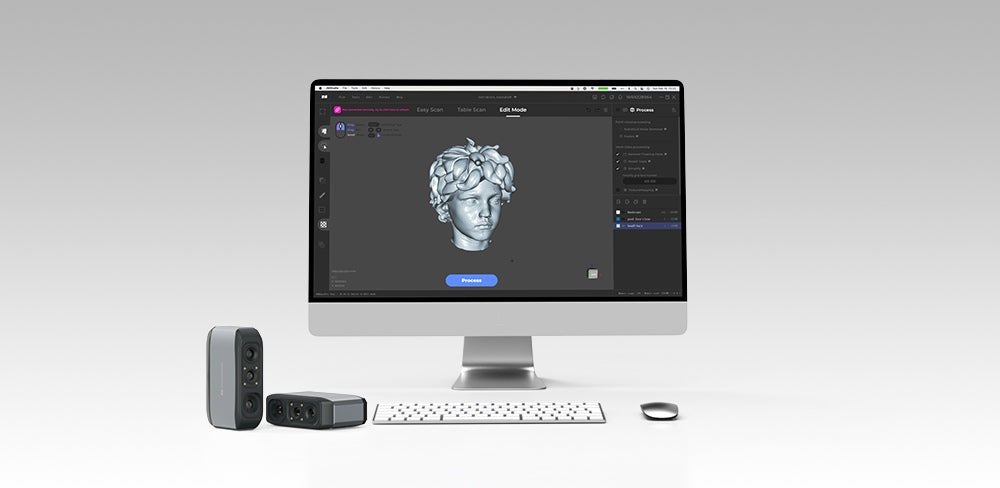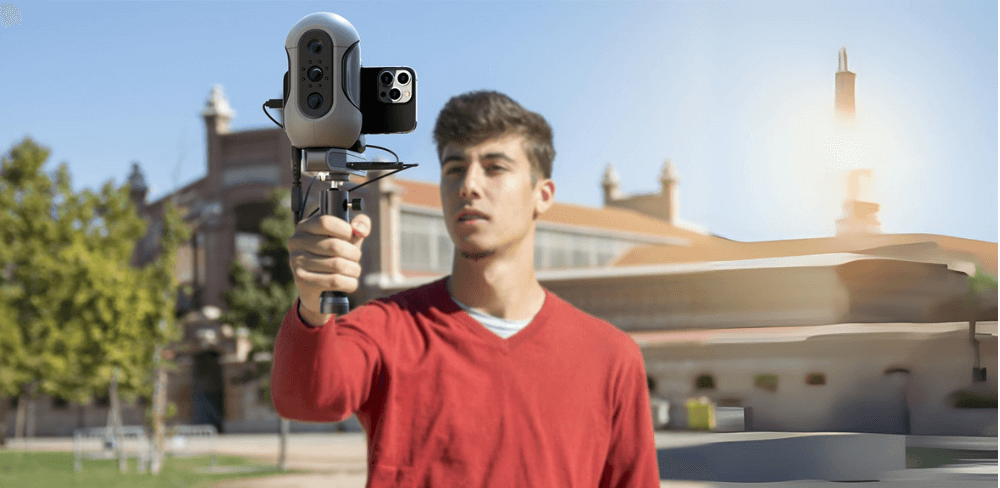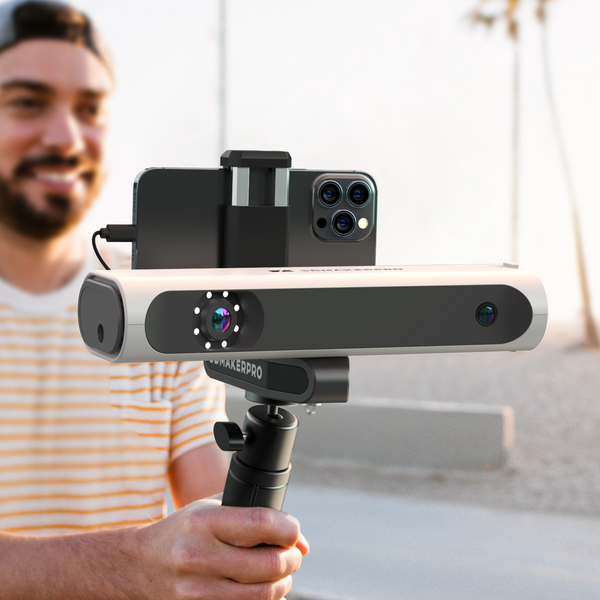In recent years, the field of 3D scanning has witnessed significant advancements, particularly in the realm of face and body scanning. With the integration of artificial intelligence (AI), these technologies have taken a giant leap forward, revolutionizing the way we capture and analyze 3D data. Let's delve into the potential of AI in enhancing the accuracy, speed, and versatility of face and body scanners, opening up new possibilities in various industries.
Improving Accuracy and Precision
AI algorithms have proven to be highly effective in enhancing the accuracy and precision of portable 3D scanners. When it comes to face scanning, AI-powered algorithms can intelligently analyze facial features and optimize the scanning process to capture intricate details with unmatched precision. Similarly, body scanners equipped with AI can accurately capture body measurements and proportions, making them invaluable tools for industries such as fashion, fitness, and healthcare.
Streamlining the Scanning Process
Traditional 3D scanning methods often require manual intervention and multiple scans to capture a complete and accurate representation of the face or body. However, with AI algorithms, the scanning process can be streamlined and automated. By leveraging machine learning techniques, AI-powered scanners can intelligently adapt to different facial and body structures, ensuring a seamless and efficient scanning experience for both users and operators.
Real-time Feedback and Quality Control
AI-enabled 3D scanning systems can provide real-time feedback during the scanning process, allowing users to make necessary adjustments to optimize the output. For instance, a face scanner powered by AI can provide immediate feedback on pose, lighting conditions, and facial expressions, ensuring high-quality scans. Similarly, AI algorithms can detect and rectify scanning errors or artifacts in body scans, ensuring reliable and accurate results.
Advanced Data Analysis and Applications
The integration of AI in 3D scanning opens up new possibilities for data analysis and applications. With AI algorithms, scanned data can be automatically processed, analyzed, and transformed into actionable insights. For example, face scanning combined with AI can enable facial recognition and emotion analysis, finding applications in security, entertainment, and healthcare. Body scans, when combined with AI, can assist in virtual try-on experiences, personalized fitness programs, and medical diagnostics.
Future Developments and Potential
As AI continues to advance, the potential for innovation in 3D scanning is limitless. Researchers and developers are exploring cutting-edge techniques such as deep learning and neural networks to further enhance the capabilities of face and body scanners. From capturing dynamic facial expressions to scanning internal body structures, the future holds exciting possibilities that will reshape industries and revolutionize the way we interact with 3D scanning technology.
In Summary
The integration of artificial intelligence in face and body scanners is revolutionizing the field of 3D scanning. With improved accuracy, streamlined processes, real-time feedback, advanced data analysis, and limitless potential, AI-powered scanners are unlocking new opportunities across various industries. As AI continues to evolve, we can expect even more groundbreaking developments that will shape the future of 3D scanning and its applications in face and body scanning.


